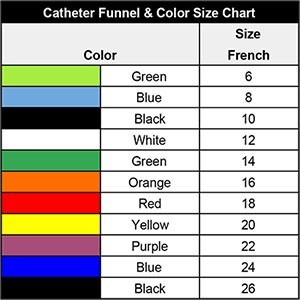The practical nurse (PN) is caring for a client who has darkened membranes of the mouth and a smoky breath. Which priority nursing problem should the PN include in the plan of care?
Risk for infection
Ineffective airway clearance
Acute pain
Disturbed body image
The Correct Answer is B
The correct answer is choice B. Ineffective airway clearance.
Choice A rationale:
Risk of infection is not the priority nursing problem in this scenario. While the darkened membranes and smoky breath may be indicative of potential infection, addressing ineffective airway clearance is more urgent as it directly impacts the client's breathing and oxygenation.
Choice B rationale:
Ineffective airway clearance should be the priority nursing problem. Darkened membranes of the mouth and smoky breath suggest possible inhalation injury or airway obstruction.
Maintaining a patent airway is crucial for adequate oxygenation and to prevent further complications.
Choice C rationale:
Acute pain is not the priority nursing problem in this case. Although it is essential to address any discomfort the client may be experiencing, it takes a back seat to the more critical issue of ineffective airway clearance.
Choice D rationale:
Disturbed body image is not the priority nursing problem when the client has darkened mouth membranes and smoky breath. While it is important to address body image concerns, the immediate focus should be on managing and improving the client's airway clearance.
Nursing Test Bank
Naxlex Comprehensive Predictor Exams
Related Questions
Correct Answer is B
Explanation
PVCs are abnormal heartbeats that occur when a ventricle contracts earlier than expected. They can indicate electrolyte imbalance, such as hypokalemia, which can result from NG suctioning. The PN should report this finding to the healthcare provider, as it may require treatment or adjustment of the suctioning.
The other options are not correct because:
A. Hyperactive bowel sounds on assessment may indicate increased peristalsis or bowel obstruction, but they are not related to the client's symptoms or NG suctioning.
C. Hypoactive bowel sounds on assessment may indicate decreased peristalsis or ileus, which are expected after bowel surgery and do not require immediate intervention.
D. Regular heart rate of 100 beats per minute on telemetry may indicate tachycardia, which can have various causes, but it is not as concerning as PVCs in this context.
Correct Answer is C
Explanation
This is the first action that the PN should take because the catheter size and balloon volume are inappropriate for the client. A #18 urinary catheter is too large for a female client who weighs 50 kg, and a 30 mL balloon may cause bladder trauma or discomfort. The PN should consult with the charge nurse and obtain a smaller catheter (such as #14 or #16) with a 10 mL balloon.

A. Obtaining a 30 mL syringe and a vial of sterile water is not the first action because it does not address the issue of the catheter size and balloon volume.
B. Asking the client if she has previously been catheterized is not the first action because it does not address the issue of the catheter size and balloon volume.
D. Positioning the client and observing the urinary meatus is not the first action because it does not address the issue of the catheter size and balloon volume.
Whether you are a student looking to ace your exams or a practicing nurse seeking to enhance your expertise , our nursing education contents will empower you with the confidence and competence to make a difference in the lives of patients and become a respected leader in the healthcare field.
Visit Naxlex, invest in your future and unlock endless possibilities with our unparalleled nursing education contents today
Report Wrong Answer on the Current Question
Do you disagree with the answer? If yes, what is your expected answer? Explain.
Kindly be descriptive with the issue you are facing.
